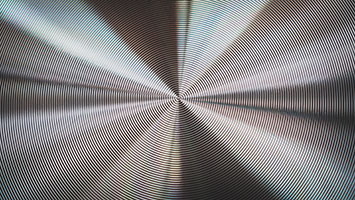Everyone agrees that expert evidence should be reliable. Judges have historically determined whether an expert is qualified to render a specialized opinion, and if so, whether the expert’s opinion is based on something more substantial than conjecture.
Some version of the Daubert standard for determining the admissibility of expert testimony now prevails in most states. That standard gives judges a greater role in deciding whether expert testimony is based on a reliable methodology.
Reliability standards have tended to be more stringent in civil cases because the insurance industry and business lobbyists have campaigned for admissibility standards that serve their interests by excluding expert testimony that might convince a jury of a corporate defendant’s liability. Reliability standards have tended to be more lax in criminal cases because prosecutors have advocated standards that serve their interests in obtaining convictions. The different approaches to reliability in civil and criminal cases make it easier for “junk science” to be admitted in criminal trials, as the President’s Council of Advisors on Science and Technology made clear in 2016.
Sometimes experts who do not testify influence the testimony of other witnesses. In those cases, the question of reliability becomes more difficult for courts to assess. Testimony that is “refreshed” by hypnosis is an example of an expert’s use of a methodology that may cause juries to hear unreliable testimony.
Hypnotically Refreshed Recollection
Charles Flores and Richard Childs were charged with murdering a 64-year-old woman who was unexpectedly at home when they burglarized her house. The murder was committed in 1998. Childs made a deal and was sentenced to 35 years in prison. He was released after serving 17 years.
Flores was found guilty in a trial and was sentenced to death. When Childs entered his guilty plea, he admitted that he killed the victim, but a jury found Flores guilty because of evidence that he participated in the robbery that ended in the victim’s death. Allowing the killer to go free after 17 years while the non-killer is sentenced to death is an outcome that causes people to wonder what is wrong with the criminal justice system.
Two witnesses testified that Flores admitted to being at the crime scene. A third witness testified that she smoked methamphetamine with Flores and Childs before telling them that there was money hidden in the victim’s home.
The only eyewitness who placed Flores at the crime scene testified after her memory was hypnotically “refreshed.” Before being hypnotized, she could only recall seeing two men get out of a Volkswagen and enter the victim’s home at about the time the murder was committed. She couldn’t make an identification because she only glimpsed the men while peeking through the blinds shortly before sunrise.
Other neighbors saw two white men leave the Volkswagen. They described the men as having a medium build and long hair. Flores is Hispanic, obese, and had short hair at the time the crime was committed.
After being hypnotized, the neighbor who testified was suddenly able to identify Flores as being one of the men. Was her recollection hypnotically refreshed, or did the hypnosis influence her identification?
The witness was hypnotized by a police officer. She was the first and only person he ever hypnotized. Even if hypnosis might refresh a memory without changing it, there is reason to question whether a police officer who is not an experienced hypnotist is the kind of expert who can produce a reliable result.
Hypnosis Challenged as “Junk Science”
Flores was scheduled to be executed, but he received a stay so that he could challenge the reliability of memories that are refreshed through hypnosis. He may have an uphill battle, given that Texas appellate courts have twice upheld hypnosis as a forensic tool, while purporting to place safeguards on its use.
It may be time for Texas to reexamine those precedents. More than half of all states have deemed hypnosis to be “junk science” and have banned testimony that would not have been given in the absence of hypnosis. The modern trend, based on new research into how memories are formed and stored, has rejected the reliability of hypnosis as a tool for producing accurate memories.
Studies have found that hypnosis does not help people recall events more accurately. Instead, it makes people more confident of their memories, whether or not the memories are correct. In fact, studies suggest that hypnosis converts guesses and hunches into statements of absolute fact.
Studies have also demonstrated the risk that questioning under hypnosis will implant false memories. That risk is particularly concerning when the hypnotist is a law enforcement officer rather than a neutral expert.
In states that allow testimony based on hypnotically refreshed memories, it is imperative for defendants to call an expert witness who can explain to the jury why hypnosis is not a reliable means of producing accurate memories. If Flores loses his challenge, he may one day be executed because his lawyers failed to present critical expert testimony to the jury.




